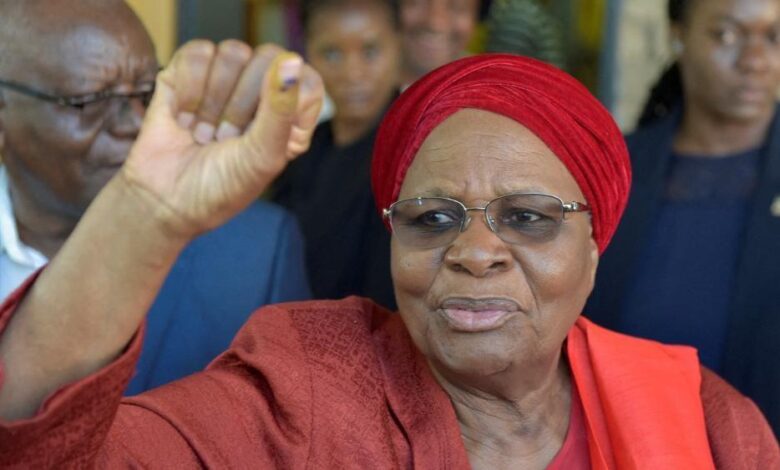Namibia elects first female president in disputed poll

Netumbo Nandi-Ndaitwah, from the governing South West Africa People’s Organisation (Swapo), has been voted in as Namibia’s first female president after last week’s disputed election.
The electoral commission said she had won more than 57% of the votes cast, with her closest rival Panduleni Itula getting 26%.
But following logistical problems and a three-day extension to polling in some parts of the country, Itula said on Saturday that his party would not recognise the results alleging electoral malpractice.
As a consequence, most of the opposition parties boycotted the results announcement on Tuesday evening in the capital, Windhoek, The Namibian newspaper reports.
“The Namibian nation has voted for peace and stability,” the Reuters news agency quotes Nandi-Ndaitwah as saying once the outcome had been announced.
Swapo has been in power in the large but sparsely populated southern African country since independence in 1990.
A party stalwart, Nandi-Ndaitwah, who is currently the vice-president, is a trusted leader having served in high government office for a quarter of a century.
Once sworn in she will be joining an exclusive club as at the moment Tanzania’s Samia Suluhu Hassan is Africa’s only female president.
A trained dentist, Itula, of the Independent Patriots for Change (IPC), is seen as more charismatic than Nandi-Ndaitwah and managed to dent Swapo’s popularity in the last presidential election in 2019, reducing its vote share to 56% from 87% five years earlier.
The IPC has said it will “pursue justice through the courts” and has encouraged people who felt that they had been unable to vote because of mismanagement by the electoral commission to go to the police to make a statement.
Swapo led the struggle for nationhood against apartheid South Africa. Ahead of last Wednesday’s general election there had been some speculation that it would suffer the fate of other liberation parties in the region.
South Africa’s African National Congress lost its outright parliamentary majority in May and the Botswana Democratic Party was kicked out of power after nearly six decades following October’s election.
You may also be interested in:
Go to BBCAfrica.com for more news from the African continent.
Follow us on Twitter @BBCAfrica, on Facebook at BBC Africa or on Instagram at bbcafrica
BBC Africa podcasts




